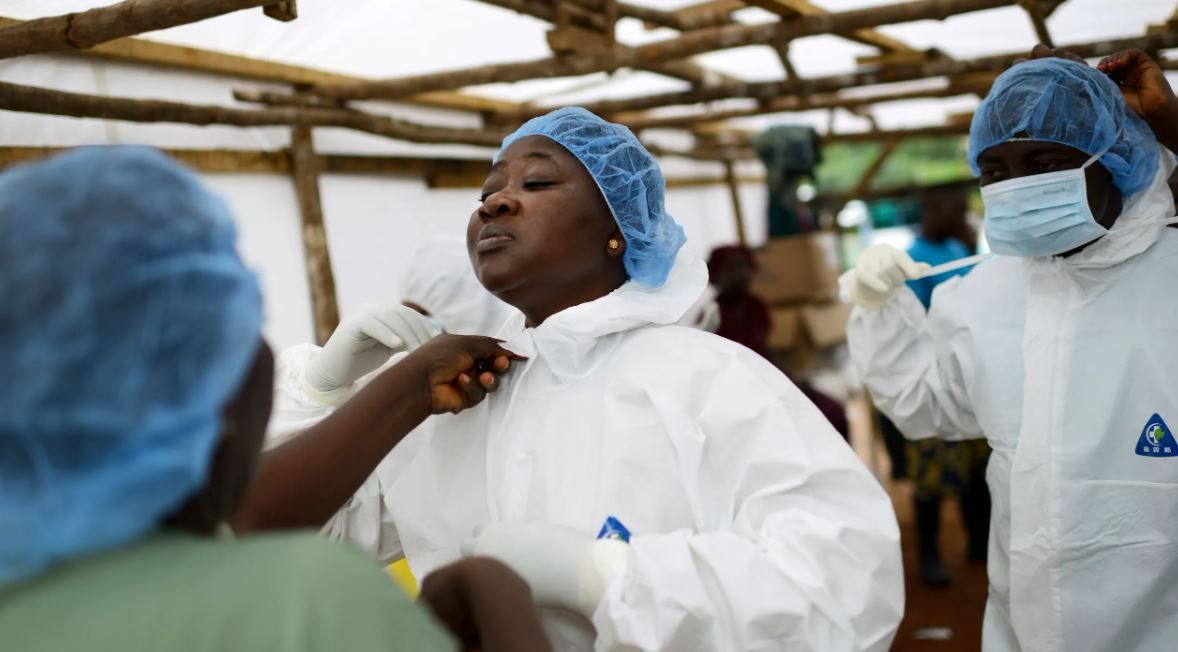In 2014, the Ebola virus devastated many countries in Africa. Thousands of people died of the disease. Among the many anonymous heroes are nurses like Josephine Finda Sellu. Josephine, 42, is the deputy nurse matron at the government-run hospital in Kenema in Sierra Leone. Kenema was Sierra Leone’s biggest death trap since the virus struck. Josephine was part of a select club: she is one of three surviving nurses of the original staff who did not become infected. They watched their patients die and their colleagues die, but they carried on.
Josephine thought about quitting – her family pleaded with her to quit. But she says, “There is a need for me to be around. I am a senior [nurse]. All the junior nurses look up to me.” If she left, she says, “the whole thing would collapse.”

In the campaign against the Ebola virus, the front line is stitched together by people like Josephine: doctors and nurses who give their lives to treat patients who will probably die; janitors who clean up lethal pools of human waste so that beleaguered health centres can stay open; drivers who venture into villages overcome by illness to retrieve patients; body handlers charged with the dangerous task of keeping highly infectious corpses from sickening others.
Many of these health care workers died, some have fled – but many new recruits sign up willingly, often receiving little or no pay, sometimes giving up their homes, communities and even their families. Often family members and neighbours would not let health care works return to their homes and villages, terrified that they carry Ebola virus with them.
“It has been a nightmare for me,” Josephine says. “Since the whole thing started I have cried a lot . . . It came to a time when I was thinking of quitting this job. It was too much for me . . . [But] you have no options. You have to go and save others. You see your colleagues dying, and you still go to work.
“There are times when I say, ‘Oh my God, I should have chosen secretarial,’” but her job as a healer, Josephine says, “is a call from God.”
The parable of the talents focuses on the critical question of not what we possess in terms of talent and ability but our willingness to use those skills to make the kingdom of God a reality here and now. We may have the skills to be a brilliant surgeon – or we may be able to bring healing to others by our simple but under-appreciated ability to listen to them in their pain; we may have the opportunity to influence the lives of many people – or we may be a good mom or dad to our own children; we may have the skills to manage big organizations that accomplish much good – or we may take a regular turn at the local soup kitchen. The Spirit of God prompts us to use those “talents” for the common good, to bring healing to the broken, to establish the Kingdom of God in our time and place. Jesus calls us to be aware too of the many gifts of those around us, to honour them as blessings from God, and do all that we can to encourage them to develop their “talents” for good of all and the praise of their Giver.
Such an investment is demanding work, as Josephine and her colleagues well know. Whatever we can do, whatever our skills and resources enable us to do, the challenge of the Gospel is to be ready and willing to respond to the opportunities we have to give joyfully and generously for the sake of his Kingdom.